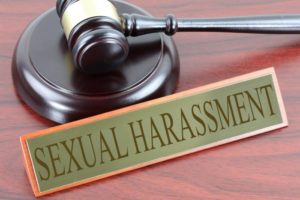
Discover the legal boundaries of disagreement turning into abuse. Learn about the thin line separating the two and safeguard your interactions.
Introduction
In the realm of human interaction, disagreements are inevitable. They stem from differences in opinion, values, and perspectives. However, when does a mere disagreement cross the threshold into the realm of abuse? Understanding this distinction is crucial for maintaining healthy relationships and navigating legal complexities. This article delves into the legal lines you shouldn’t cross when disagreements escalate, providing insights and guidance on recognizing and addressing abusive behaviors.
Recognizing the Signs
In many instances, abuse begins subtly, masked behind the facade of disagreement. Understanding the signs can empower individuals to identify abusive behaviors early on. Common indicators include:
- Manipulative Language: Words used to control or demean the other party.
- Isolation Tactics: Attempts to cut off social support networks.
- Physical Intimidation: Gestures or actions that induce fear or discomfort.
Understanding the Legal Definitions
The legal system provides frameworks for delineating between disagreement and abuse. Key legal concepts include:
Domestic Violence Laws
These laws encompass a range of behaviors aimed at exerting power and control over another individual within a domestic setting. Understanding the nuances of domestic violence laws is crucial for recognizing abusive behaviors and seeking legal recourse when necessary.
Harassment and Intimidation
Harassment laws protect individuals from unwanted behaviors that create a hostile environment. Intimidation tactics, such as threats or stalking, may constitute harassment and carry legal consequences.
Seeking Support and Resources
When faced with a contentious situation, seeking support is paramount. There are numerous resources available to individuals experiencing or witnessing abusive behaviors:
- Hotlines and Helplines: Accessible avenues for immediate assistance and guidance.
- Counseling Services: Professional support for processing emotions and developing coping strategies.
- Legal Aid Organizations: Assistance with navigating the legal system and seeking protective measures.
When Does a Disagreement Become Abuse? Legal Lines You Shouldn’t Cross
Navigating the delicate balance between disagreement and abuse requires a nuanced understanding of interpersonal dynamics and legal frameworks. Here are some key considerations:
- Respect Boundaries: Maintain respectful communication and refrain from engaging in behaviors that infringe upon another individual’s autonomy.
- Seek Consent: Obtain consent before initiating any actions or conversations that may impact the other party.
- Monitor Power Dynamics: Be mindful of power imbalances that may contribute to abusive behaviors, and strive to promote equitable interactions.
FAQs (Frequently Asked Questions)
- What are the common warning signs of abuse?
- Warning signs include verbal insults, physical aggression, and attempts to control the other person’s actions or behaviors.
- How can I protect myself from abusive situations?
- Reach out to trusted friends or family members for support, and consider seeking assistance from local law enforcement or domestic violence shelters.
- Are there legal remedies for victims of abuse?
- Yes, victims of abuse may seek legal protection through restraining orders, legal aid services, and advocacy organizations specializing in domestic violence cases.
- Can disagreements be resolved amicably without escalating into abuse?
- Yes, open and respectful communication, coupled with a willingness to compromise, can facilitate the resolution of disagreements without resorting to abusive behaviors.
- What role do power dynamics play in abusive relationships?
- Power imbalances, such as those based on gender, age, or socioeconomic status, can exacerbate abusive behaviors by enabling the perpetrator to exert control over the victim.
- Where can I find additional support and resources?
- Local organizations, such as women’s shelters, counseling centers, and legal aid clinics, offer valuable support and resources for individuals experiencing or witnessing abusive situations.
Conclusion
Understanding the legal boundaries of disagreement turning into abuse is essential for fostering healthy relationships and safeguarding individuals from harm. By recognizing the signs of abuse, seeking support, and adhering to ethical guidelines, individuals can navigate interpersonal conflicts while upholding mutual respect and dignity.







